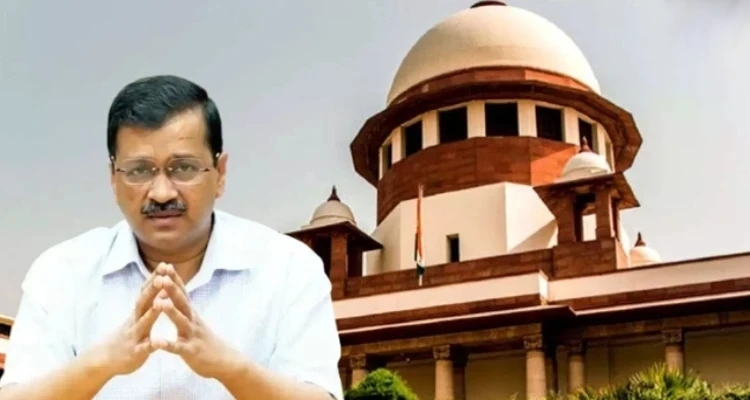
The Supreme Court on Friday deferred the hearing on Delhi Chief Minister Arvind Kejriwal’s pleas seeking bail and challenging his arrest by the CBI in the alleged excise policy scam until September 5.
A bench comprising Justices Surya Kant and Ujjal Bhuyan granted the CBI time to file its counter affidavit in the matter, allowing two days for Kejriwal to submit a rejoinder.
Senior advocate Abhishek Singhvi, representing Kejriwal, informed the court that the CBI had filed a counter affidavit for only one of the pleas, which was served to them at 8 pm on Thursday. ASG SV Raju, on behalf of the CBI, assured the court that the counter for the other plea would be filed within a week. Subsequently, the bench scheduled the next hearing for September 5.
Kejriwal has filed two separate petitions—one challenging the denial of bail and the other contesting his arrest by the CBI. He is appealing against the Delhi High Court’s orders dated August 5. On August 14, the Supreme Court refused to grant interim bail to Kejriwal and sought a response from the CBI regarding his plea challenging the arrest. Kejriwal was arrested by the CBI on June 26.
The Delhi High Court, on August 5, upheld the legality of Kejriwal’s arrest, ruling that there was no malice in the actions taken by the CBI, which demonstrated that the AAP leader could potentially influence witnesses who only felt secure to testify after his arrest. The high court advised Kejriwal to apply for regular bail in the trial court.
The high court noted that the evidence against Kejriwal was solidified after his arrest, with relevant evidence collected justifying the CBI’s actions. It emphasized that Kejriwal, a distinguished Magsaysay Award recipient and the Aam Aadmi Party’s convenor, wielded considerable influence over witnesses, which only waned following his arrest, allowing them to come forward.
The high court dismissed Kejriwal’s plea against his arrest, stating that the CBI’s further investigation proceeded only after sufficient evidence was gathered and necessary sanctions were obtained in April 2024. It also highlighted that the crime’s connections extended to Punjab, but key witnesses were hesitant to testify due to Kejriwal’s influence. Their statements were only recorded after his arrest.
Kejriwal, who was previously arrested by the ED on March 21, had been granted bail by the trial court in the money laundering case on June 20. However, the high court stayed the trial court’s order. On July 12, the Supreme Court granted him interim bail in the money laundering case.
The excise policy in question was scrapped in 2022 following an order by the Delhi lieutenant governor for a CBI investigation into alleged irregularities and corruption in its formulation and execution. As per the CBI and ED, the policy was altered to benefit license holders, resulting in significant irregularities.




